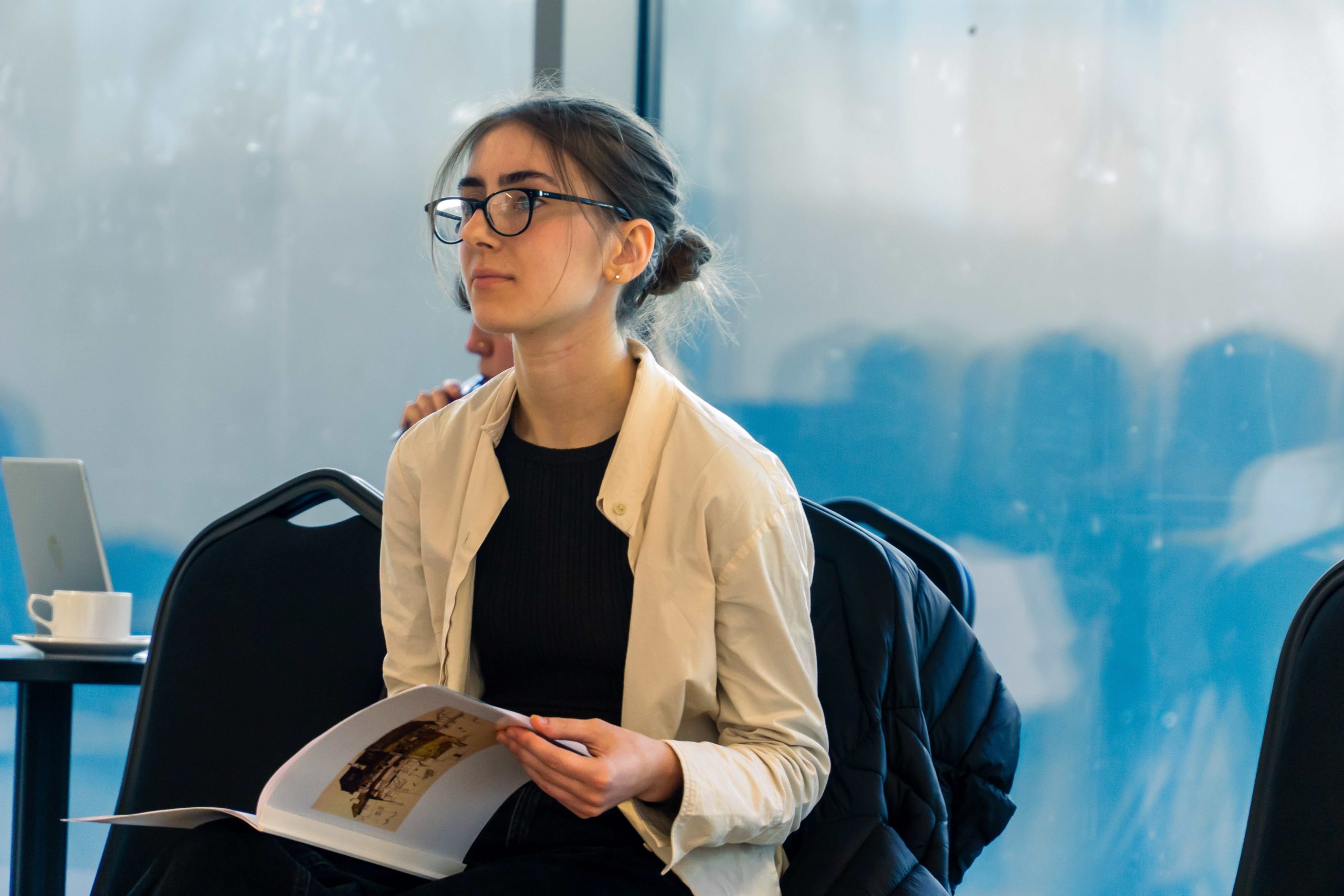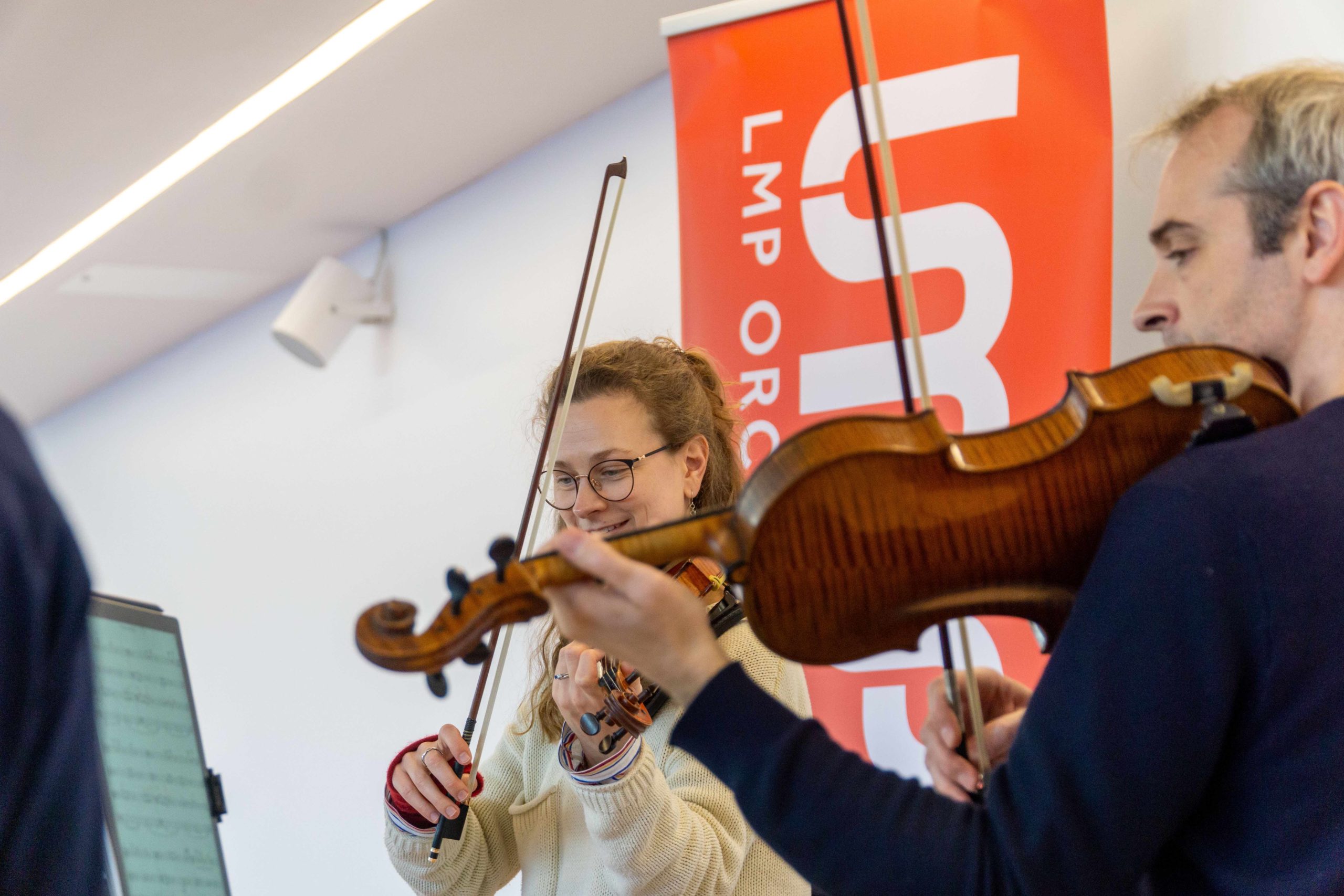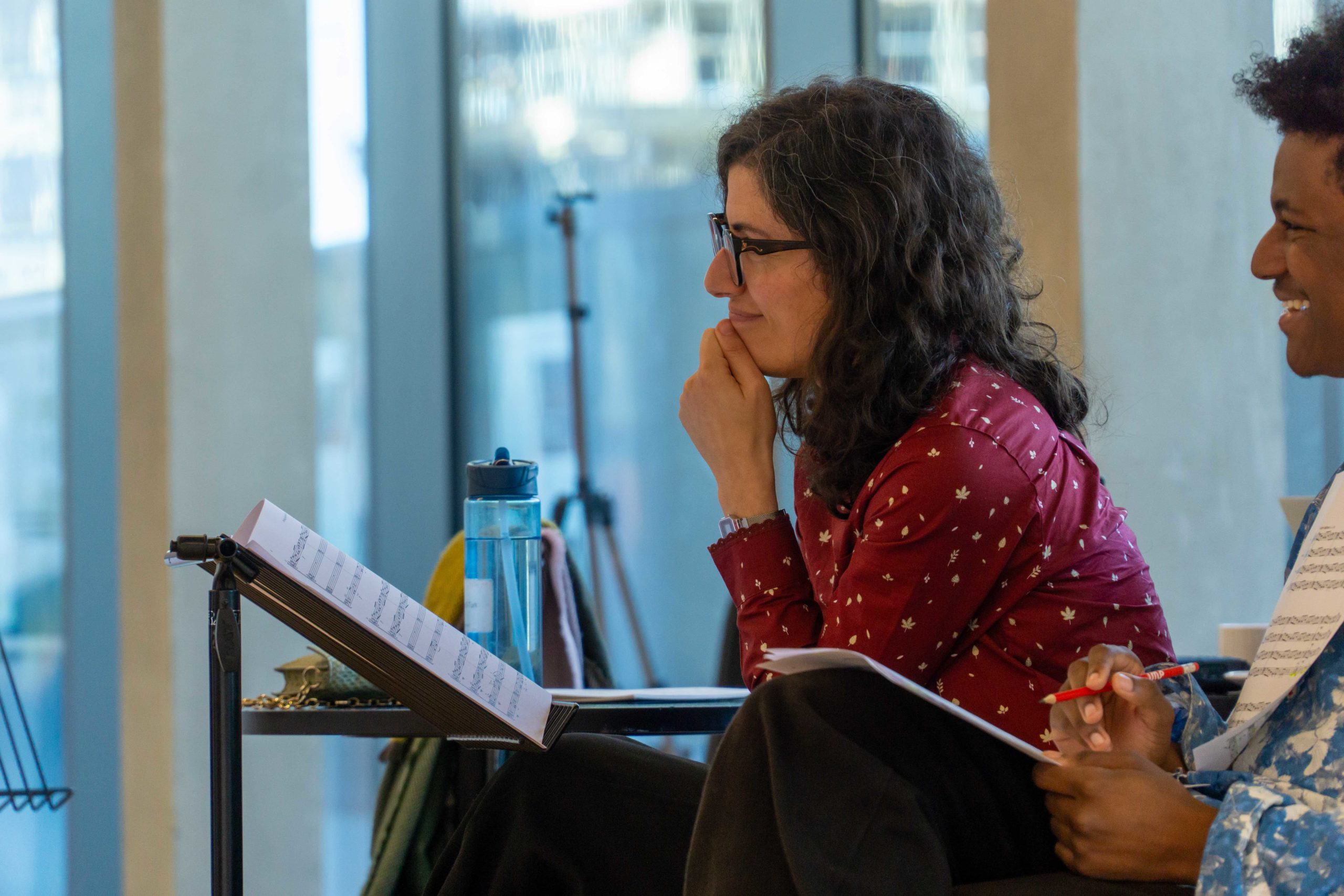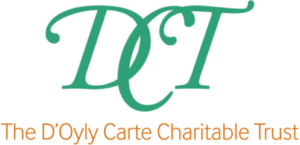Are you a budding young composer from London or the South East?
The Samuel Coleridge-Taylor Prize has been created to support young composers from underrepresented backgrounds as part of our commitment to enable more young people embark on a career within the classical music industry.
The Prize
The winner of the prize will receive a bursary of £1000 to support their professional development. This can be used to fund expenses such as further mentoring, purchasing equipment or software, or contributing to recording costs.
Selected finalists will also have the opportunity to workshop their piece with our players and a professional mentor.
Eligibility
To be eligible for the Prize, you must:
- Live, work or study in the UK
- Be born on or after 1 January 1996
- Identify as coming from an under-represented background. This can be (but is not limited to):
– Global majority
– Neurodivergent
– Having a physical or learning disability
– Working class (e.g. previously eligible for free school meals)
Past finalists or winners of the Samuel Coleridge-Taylor Prize need not apply.
The process
To make your application, please fill out and submit the application form which includes:
- Audio file of your chosen musical work for assessment*
- A score for your audio work**. If you do not use scores as part of your practice, please see below.
- Your details
- Equal opportunities monitoring form
* The chosen work must be:
- An original and unaided composition
- Suitable to be played by a string quartet (2 violins, viola, cello)
- Between 4-6 minutes in length
- Anonymised – please do not put your name (including other variants such as initials) anywhere on your submitted score on in the file name of your audio example
Audio examples can be MIDI files from software such as Sibelius, Dorico or Finale. Candidates will not be assessed on the audio quality of the recording.
**Graphic and text scored are eligible to submit as scores. If you do not have a notated composition practice, transcription support is available to selected candidates if successful in the shortlisted round. Please indicate on this application form and fill out the relevant follow-up questions.
Please note that we will only accept one submission per applicant. Your application will be anonymised before being submitted for assessment by the panel.
Entries must be submitted no later than 11:59pm on Monday 5 January 2026. Any submissions after this deadline will not be considered.
Click here to see the questions you will be asked.
Our panel of industry experts will review all the anonymised submissions and select a small number of finalists based on their assessment against the ‘Award Criteria’ outlined below
Workshops
A small number of shortlisted candidates will be invited to attend a workshop with our players and a professional mentor. The finalists will have the opportunity to hear their piece performed by our players. experiment with musical ideas and discuss improvements to be made. At the end of the session, candidates will receive a live recording of their work for portfolio purposes.
Deliberation
Our panel will reconvene to review the workshop recordings and select a winner for the prize.
Award Criteria
When reviewing each submission, judges will be looking for the following:
- Originality: How original is the writing? If not an entirely original composition, how effectively does the piece provide a fresh perspective on an existing piece?
- Suitability: How suitable is the piece for the instruments that will be played? Does the composer show an understanding of the different instruments’ capabilities?
- Form: If the composer chooses to use a particular structure, how effectively is their use of that structure?
Please note that photography and videography will occur at various points throughout the process.



Timeline
- Sunday 19 October 2025
- Monday 5 January 2026
- Friday 27 February 2026
- April 2026
- May 2026
- Applications open
- Application deadline
- Shortlisted candidates selected and informed
- Workshop with finalists, mentor and LMP musicians
- Winner announced
Our previous winner
Our previous winner Ryan Morgan had his winning work performed at an LMP concert in January 2024. Ryan has gone on to receive commissions from Birmingham Opera Company, London Sinfonietta, and Terra Invisus. LMP have since commissioned Ryan to write a new work for string orchestra premiering in October 2025 as part of our Samuel Coleridge-Taylor 150 celebrations.
Who is Samuel Coleridge-Taylor?
Samuel Coleridge-Taylor was born in 1875 to an English mother and Sierra Leone Creole father whom he never met. He was named after the poet Samuel Taylor Coleridge and raised in Croydon by his mother. His maternal grandfather was a violinist who saw the young Coleridge-Taylor’s talent and encouraged him to enrol at the Royal College of Music. He won a scholarship, beating Gustav Holst amongst others, and began studying as a violinist before switching to composition.
He was deeply involved with African-American networks, counting amongst his friends W.E.B.Dubois, Frederick Loudin, Booker T.Washington and Paul Laurence Dunbar, whose poems he set to music. In works such as ‘Symphonic Variations on an African Air’, he sought to integrate the melodies of African-American spirituals within the classical music tradition. Like Brahms, Dvořák or Grieg, Coleridge-Taylor was participating in the nineteenth-century trend of musical nationalism.
Samuel Coleridge-Taylor died at 37 of pneumonia. Despite his popular successes, he had been prevented from reaping the financial rewards. With public support, a memorial concert was held at the Royal Albert Hall which raised significant funds for his family. His widow Jessie was granted a pension from the King and the Performing Rights Society was established to ensure composers were paid adequately for their works’ success. Later, his daughter became a composer-conductor and his son worked to ensure his father’s music was performed after his death,
Support the Samuel Coleridge-Taylor Prize
LMP receives no core public funding and relies heavily on the generosity of its donors. Help secure the future of the Samuel Coleridge-Taylor Prize – a donation of any size can help pay for players in workshops, provide additional hours of mentoring support or contribute to a professional development bursary for emerging composers.
The Samuel Coleridge-Taylor Prize is generously supported by D’Oyly Carte Charitable Trust.

